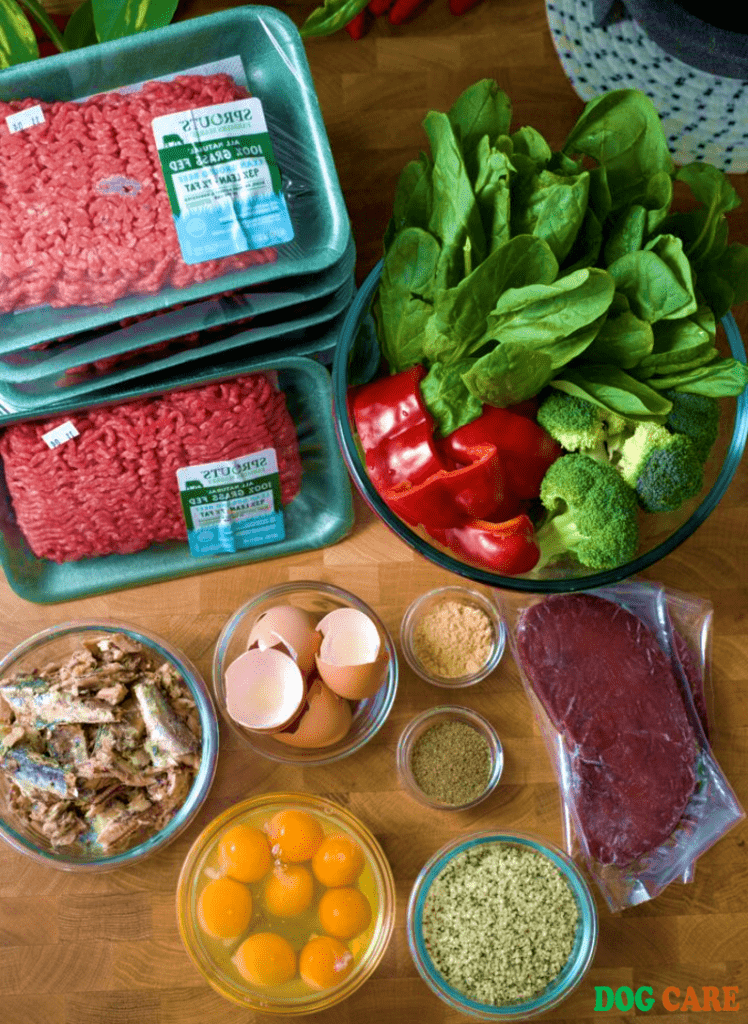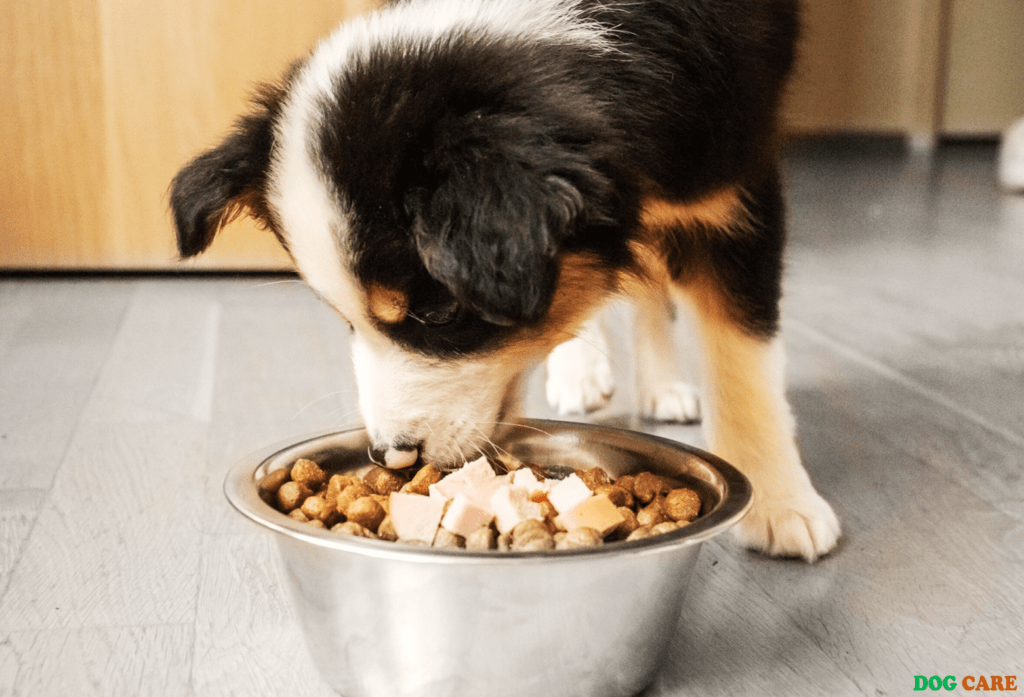Best Dog Food for Sensitive Stomach is a key consideration for pet owners seeking to alleviate their dog’s digestive issues. This comprehensive guide will provide insights into the top dog food options catering to sensitive stomachs, offering optimal nutrition while minimizing digestive discomfort.
By understanding the ingredients to look for and exploring various brands, pet owners can make an informed decision that meets their dog’s specific dietary needs. Whether you have a puppy or an adult dog, this guide will assist in identifying the best dog food for sensitive stomachs, ensuring a happy and healthy life for your furry friend.
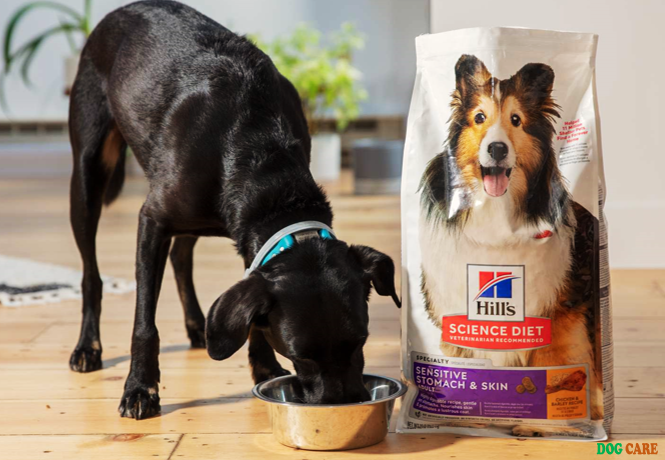
Understanding Sensitive Stomachs In Dogs
Just like humans, dogs can experience digestive issues too. Sensitive stomachs in dogs can lead to discomfort, poor digestion, and other health problems. Understanding the causes and recognizing the symptoms of a sensitive stomach is crucial in ensuring your furry friend maintains a happy and healthy life. In this article, we will explore the common causes and symptoms of sensitive stomachs in dogs, as well as provide recommendations for the best dog food options to help alleviate these issues.
Common Causes Of Sensitive Stomachs
There are various factors that can contribute to the development of a sensitive stomach in dogs. Here are some common causes:
- Poor diet: Dogs that are fed low-quality or inappropriate dog food may develop sensitivities to certain ingredients, such as grains or artificial additives.
- Food allergies: Just like humans, dogs can develop allergies to certain foods, causing digestive discomfort and other adverse reactions.
- Sudden dietary changes: Abruptly switching your dog’s food can disrupt their digestive system and lead to gastrointestinal upset.
- Intolerance to specific ingredients: Some dogs may have difficulty digesting certain ingredients, such as beef, chicken, or dairy, resulting in a sensitive stomach.
- Underlying health conditions: Certain medical conditions, such as inflammatory bowel disease or pancreatitis, can make dogs prone to developing a sensitive stomach.
By identifying the root cause of your dog’s sensitive stomach, you can take appropriate steps to alleviate their discomfort and improve their overall digestive health.
Symptoms Of A Sensitive Stomach
Recognizing the symptoms of a sensitive stomach in dogs is important in providing timely care and treatment. Here are some common signs to look out for:
- Diarrhea or loose stools
- Vomiting or regurgitation
- Frequent flatulence or bloating
- Decreased appetite or reluctance to eat
- Weight loss or poor weight gain
- Excessive licking or chewing of paws
- Unexplained fatigue or lethargy
If you notice any of these symptoms persisting or worsening over time, it is advisable to consult with your veterinarian to rule out any underlying health issues and to discuss the best course of action for your dog’s sensitive stomach.
In the next section, we will delve into the best dog food options for dogs with sensitive stomachs, which can help alleviate their symptoms and provide them with the necessary nutrition.
Tips For Choosing The Best Dog Food For Sensitive Stomach
If your dog has a sensitive stomach, it’s important to choose the right dog food that will provide them with the nutrition they need while avoiding ingredients that may irritate their digestive system. Here are some helpful tips to keep in mind when selecting dog food for a sensitive stomach:
Look For Limited Ingredient Dog Foods
Dogs with sensitive stomachs may benefit from limited ingredient dog foods, which are formulated with a shorter list of ingredients to minimize the risk of triggering gastrointestinal issues.
These foods typically contain a single source of animal protein, such as lamb or salmon, which reduces the chances of allergic reactions or digestive upset. Limited ingredient dog foods also tend to have fewer fillers and artificial additives, making them easier for dogs to digest.
Consider Digestible Protein Sources
The source of protein in your dog’s food can play a significant role in their digestive health. Opt for easily digestible protein sources, such as chicken or turkey, that are gentle on your dog’s stomach.
High-quality proteins provide essential amino acids that promote overall health and support a strong immune system. Avoid protein sources that are difficult for dogs to digest, such as beef or pork, as they can potentially exacerbate digestive issues.
Avoid Common Allergens
Many dogs with sensitive stomachs have food allergies or sensitivities to certain ingredients. It’s crucial to identify and avoid common allergens in your dog’s food to prevent digestive upset.
Common allergens for dogs include grains (like wheat, corn, and soy), dairy products, and artificial additives. Opt for dog foods that are free from these ingredients to reduce the risk of an allergic reaction or gastrointestinal discomfort.
By following these tips, you can choose the best dog food for your furry friend’s sensitive stomach, providing them with the nutrition they need in a gentle and easily digestible form.
Top Picks For Dog Food For Sensitive Stomach
If your furry friend has a sensitive stomach, finding the right dog food can make all the difference. Luckily, there are several brands out there specifically formulated to meet the needs of dogs with sensitive stomachs. In this article, we’ll explore three top picks for dog food for sensitive stomachs, focusing on their unique features and benefits.
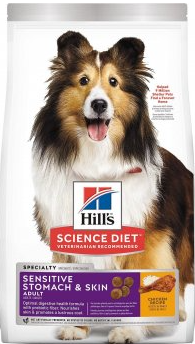
Brand Hill’s Science Diet: Hill’s Science Diet Limited Ingredient Dog Food
Hill’s Science Diet Limited Ingredient Dog Food is a great option for dogs with sensitive stomachs. Made with a limited number of high-quality ingredients, this dog food is designed to be gentle on the digestive system. It contains only premium proteins, such as chicken or lamb, and avoids common allergens like corn, wheat, and soy. This brand also includes essential vitamins and minerals to support your dog’s overall health and well-being.
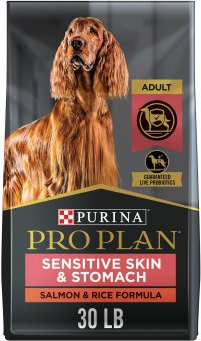
Brand Purina Pro Plan: Purina Pro Plan Dog Food
Another top pick for dogs with sensitive stomachs is Purina Pro Plan Digestible Protein Dog Food. This brand prioritizes ingredients that are easy to digest, making it ideal for pups with sensitive digestive systems. It includes high-quality proteins like chicken or fish, which are not only highly digestible but also provide the necessary nutrients for your dog’s growth and maintenance. This brand also contains essential fatty acids for healthy skin and a shiny coat.
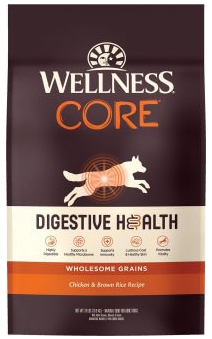
Brand Wellness Core : Def Allergen-free Dog Food
Wellness Core Allergen-Free Dog Food is an excellent choice for dogs with food allergies and sensitivities. This brand is made with hypoallergenic ingredients to minimize the chances of triggering an allergic reaction in your pup. It excludes common allergens like gluten, dairy, and artificial additives. Additionally, Wellness Core Allergen-Free Dog Food is fortified with vitamins and minerals to support your dog’s immune system and promote overall well-being.
When it comes to choosing the best dog food for a sensitive stomach, these top picks have you covered. Remember to consult with your veterinarian to determine the most suitable option for your pup’s specific dietary needs. By selecting the right dog food, you can help alleviate your dog’s stomach issues and promote a healthier, happier life.

How To Transition Your Dog To A New Diet
Transitioning your dog to a new diet is an important process that should be done gradually to avoid any digestive upset. Here is a step-by-step guide on how to smoothly transition your dog to a new food:
Gradual Transition Method
The gradual transition method is the recommended approach when changing your dog’s diet. This method involves slowly introducing the new food while gradually decreasing the old food over a period of 7 to 10 days.
To begin, prepare a schedule to ensure a smooth transition:
| Days | Mixing Ratio |
|---|---|
| Days 1-3 | 75% old food |
| Days 4-6 | 50% old food, 50% new food |
| Days 7-9 | 25% old food, 75% new food |
| Day 10 | 100% new food |
By gradually increasing the amount of new food and decreasing the old food, your dog’s digestive system can adjust more easily to the change.
Monitoring Your Dog’s Response
During the transition period, it’s crucial to closely monitor your dog’s response to the new food. Keep an eye out for any signs of digestive upset, such as diarrhea, vomiting, or lack of appetite.
- Observe your dog’s stools for any changes in consistency or frequency. Loose stools or diarrhea may indicate that the transition is too rapid for your dog’s sensitive stomach.
- Keep track of your dog’s energy levels and overall well-being. If your dog seems lethargic or shows signs of discomfort, it could be a sign that the new food is not suitable.
- Take note of any allergic reactions or skin irritations that may arise. It’s important to address any adverse reactions promptly to ensure your dog’s health and comfort.
If you notice any negative reactions, slow down the transition process by extending each phase or consult with your veterinarian for guidance. Your dog’s well-being is the top priority, and adjusting the transition to their needs is essential in finding the best food for their sensitive stomach.
Conclusion
Finding the best dog food for a sensitive stomach is essential for your furry friend’s health and well-being. By considering their dietary needs, opting for easily digestible ingredients, and avoiding common allergens, you can ensure a happy tummy. Whether you choose a grain-free or limited ingredient diet, prioritize quality nutrition for your sensitive pup.
Keep in mind that consulting with a vet is always advisable for personalized recommendations.

